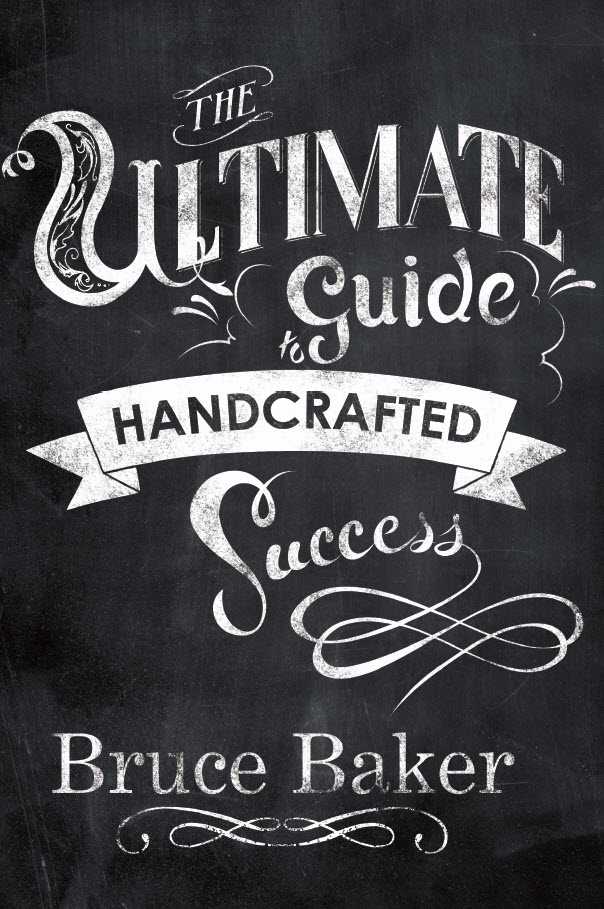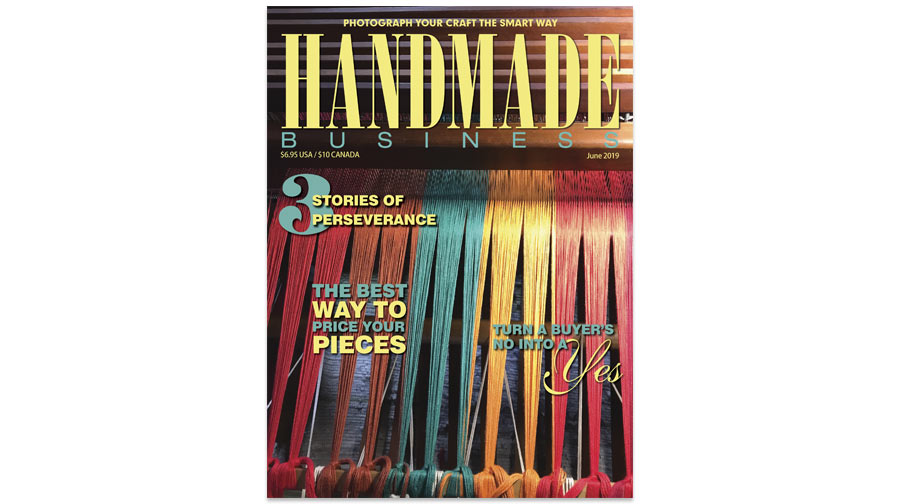If you fantasize about starting your own home craft business, I’m willing to bet a lot of your dream revolves around such things as giving up the commute, being able to call your own shots, setting your own hours, and spending more time with your family.
Usually, a person’s dreams and plans like these come after a person looks at someone who already has an established and successful home craft business.“Look at these people! Aren’t they lucky! They don’t have to drive through the snow to get to an office! All they have to do is walk across the driveway, and they’re at work!”
The trouble with this vision is that the wanna-be entrepreneur is only seeing a snapshot of the business owner’s current success, and they assume it sprang – boing! – effortlessly into being, sort of like those nifty mushrooms that grow overnight on your lawn. No preparation, no planning, just boing.
Not.
Rather than comparing an established home craft business to those rapid mushrooms, you should compare it to an oak tree. It’s slow to get started, but sturdy and strong once it’s established. This should be the pattern for your home craft business.
Boinging into Business
Go back to those dreams of working at home, of making your income from your own labor, of avoiding the commute, of spending more time with your family, etc. These are sweet dreams, and in no way do I want to discourage them. I just want to make you see them realistically.
Spurred by these wonderful fantasies, some people decide on a product to make (boing!), quit their jobs (big boing!), use their credit card to purchase the necessary raw materials and tools (boing!), pay rent on a shop space instead of using their garage (boing!), and begin production.
Then comes reality. Most home craft businesses don’t start out with a bang (or a boing).They grow slowly, like those oak trees.
The folks who “boing” into business are in for a nasty financial shock if things don’t go exactly as they fantasized.
Start-Up Costs
So, if you can’t (or shouldn’t) start a home craft business with a boing, where do you get the money to start? What about the nitty-gritty of financing a home craft business?
First, I can say, from experience, don’t quit your day job. Trust me on this. Eighteen years ago, my husband and I did just that – and regretted it.
Now, for the bright side. Getting the tools and raw materials for starting a home business may be easier than you think. Most people don’t just pluck a successful home craft business idea out of thin air. They start the business by expanding an existing hobby, talent, skill, or trade. That means that many times they already have the basic tools or materials or knowledge needed to make the product.
What kind of tools do you need? Will you need a sewing machine, a quilting machine, a band saw? If you already know how to sew or quilt or do woodworking, chances are you’ve learned your techniques on your own tools and equipment. Now is your chance to utilize these existing tools to start your home craft business.
Or, alternatively, think of a home craft product that is compatible with the tools you already own. Tools such as a sewing machine or a band saw are versatile and easily adaptable to any number of crafts.
Do you have space on your property to run a business? If you have close neighbors, they may object to loud power tools. Do you have a shop or a garage or a spare bedroom you can devote to your business? Do you have a computer for billing and internet purposes? Are you prepared for shipping?
Sacrificing for a Reason
Finding the money for a start-up small business is not easy. It’s not supposed to be easy. If it were easy, everyone would be doing it. Like anything worth doing, it usually requires a complete philosophical change from immediate gratification to deferred rewards.
So how do you raise the cash for all the tools and supplies you might need? How about for the advertising, display or show fees, raw materials, etc.? How can you do this without going into debt?
You use the principles of deferred rewards. If you had plans to buy a new (pick one) computer/car/dress/ kitchen appliance/vacation trip/restaurant dinner/lawn mower/iPod /whatever, don’t. But do take the amount of money you saved and apply it to the business instead. Your thinking should be: The old refrigerator is dying. Do I spend $1,200 and get a new fridge with the ice cube maker and water dispenser in the door? Or do I spend $100 at the used appliance store and make do for another couple of years?
Deferred Gratification
Even if you’re as thrifty as can be and apply all your spare money toward funding the business, life can get in the way.
When we started our home woodcraft business, our workshop consisted of a 10-foot x 10-foot chicken coop. Much of the time, shop work either spilled outside (in good weather) or into the house (in bad weather).Or, to put it another way, we frequently lived in our shop. It took five years for us to pull together enough money to build a comparatively palatial 20-foot x 20-foot shop building.
However, the five years we spent working in cramped quarters didn’t stop us from expanding our business. Despite the adverse circumstances, our home craft business was still our primary source of income. It just took creativity and a willingness to accept deferred gratification. We didn’t go into debt and build a shop at a time we couldn’t afford it.
The Debt Trap
Coupled with the desire to work at home is the frequent wish for instant business success (boing!), which is, let’s face it, an irrational desire to have everything go perfectly from the beginning and to have your business become a rousing success without much effort.
Yeah, that would be nice. I’d like to win the lottery, too.
However, this little boing fantasy is a dangerous trap, because sometimes it translates into a spending spree. You whip out your handy credit card and purchase all the tools, equipment, supplies, and raw materials to make your product. You set your workshop up with Geppetto-like beauty and precision. Then you stand back and think, “Okay, finally! Now I can go into business.” Bad idea.
If you’re a first-time hobby-into-business entrepreneur, don’t ever, ever, ever go into debt to finance your home business. Aside from the idea that going into debt is questionable to begin with, there is the very real possibility that your business will fail in this economy, and then you’re left with the bitter regret of a failed business and heavy debt to boot.
When my husband and I started our home craft business in 1993, that’s exactly what we did; we went into debt. That’s why I don’t suggest it. In our case, it took years to dig ourselves out of the debt-laden hole we dug while getting our business on its feet. Had we properly planned things, the debt (and stress) could have been avoided.
Give yourself time to develop your customer base, increase the speed and efficiency in making your product, and develop your marketing knowledge. Don’t sink yourself into debt getting started because of wishful thinking or misplaced optimism. Obviously, you’ll need the raw materials and tools to make the product, but work your way up toward better items as you begin to bring in income.
Reality Check
What are some of the things you’ve heard you’re supposed to do before starting a business?
You must have a business plan. Otherwise, you will fail.
You must incorporate. Otherwise, you will fail.
You must establish credit. Otherwise, you will fail.
You must buy only the best (equipment, supplies, etc.), because quality and façade (how others see you) are what’s important.
Must, must, must. Why must we do things this way?
In part, it’s because most business advice applies to larger enterprises than a home craft business. If you’re renting office space in a fancy high-rise building in the downtown portion of a large city, then it implies that you won’t be churning out handmade quilts or wooden tankards with the aid of one employee (your spouse).
But millions of businesses have started modestly, with used equipment, borrowed spaces, and family labor. There is no better and more satisfying thing than to start this way, because then your successes have been earned by the sweat of your brow.
One of the most successful home businesses we know is that of a couple who started an oil and incense business on a card table in their spare bedroom. Fifteen years later, they employ five people, rent a large warehouse, and supply stores all over the country.
Dream big, start small. Don’t do the opposite.
Remember: Bill Gates started in his garage. You can, too.





